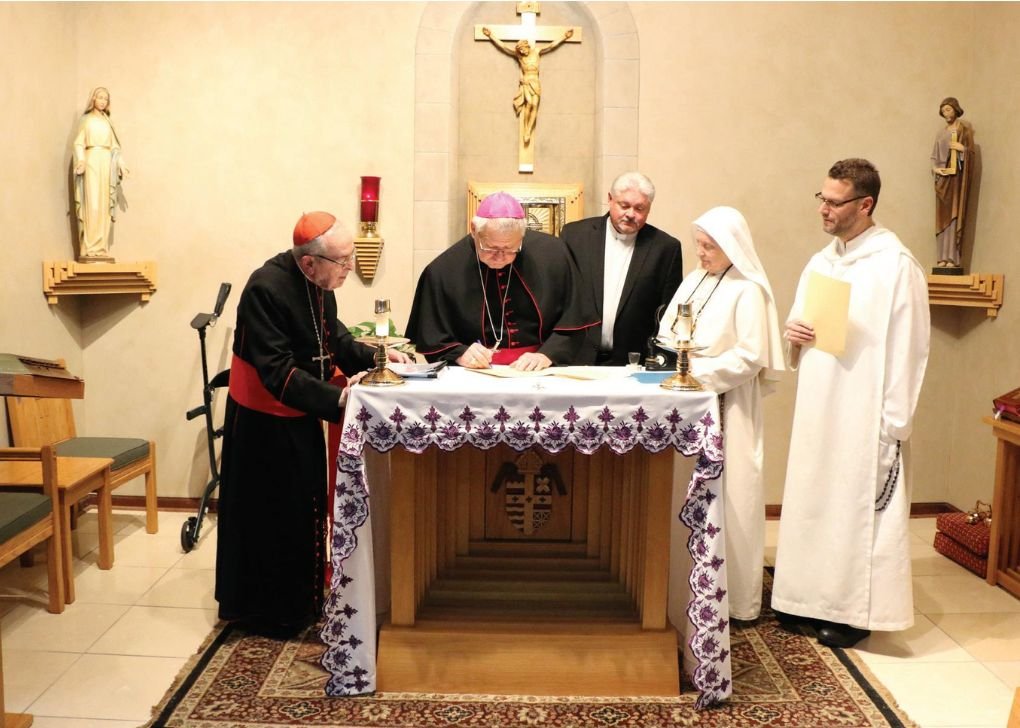The Mystic Monks scandal was a controversy that rocked the Catholic Church in the early 2000s. It involved allegations of financial impropriety and misconduct on the part of a group of monks who were seeking to build a monastery in Wyoming. The scandal attracted widespread media attention and raised questions about the ethics and accountability of religious organizations. In this blog, we will delve deeper into the Mystic Monks scandal, exploring its origins, impact, and aftermath.
Origins of the Mystic Monks Scandal
The Mystic Monks are a group of Carmelite monks who live in Wyoming. They had a dream of building a monastery on a piece of land near the town of Clark in the northwestern part of the state. To fund their project, the monks began selling coffee online under the name “Mystic Monk Coffee.” They hoped to raise enough money to buy the land and build the monastery, which would serve as their home and a place of worship.
In the early 2000s, the Mystic Monks received a windfall in the form of an $8.8 million donation from a Texas philanthropist named Lee Bass. The donation was conditional on the monks being able to purchase the land they had been eyeing for their monastery. The monks were overjoyed at the prospect of realizing their dream, but they soon ran into a roadblock.
The land they wanted to buy was owned by a group of developers who had plans to build a subdivision on the property. The developers were not willing to sell the land to the monks, even for the generous sum offered by Bass. This led the monks to pursue a controversial strategy to acquire the land.
The monks created a non-profit organization called the “Carmelite Monastery, Inc.” and used it to purchase the land in question. The developers were outraged by this move, and they launched a legal battle to block the sale. The case ended up in court, where the developers argued that the monks had used deceptive practices to acquire the land.
Impact of the Scandal
The Mystic Monks scandal had far-reaching implications for the Catholic Church and religious organizations in general. It raised questions about the transparency and accountability of religious groups, and it highlighted the potential for financial misconduct in these organizations.
The scandal also generated a significant amount of media attention, with newspapers and TV stations across the country reporting on the controversy. The Mystic Monks were portrayed as an example of a religious group gone awry, with allegations of greed and deception swirling around their project.
The controversy also had a profound impact on the local community in Wyoming. Many residents of Clark and the surrounding areas had supported the Mystic Monks project and had been looking forward to the construction of the monastery. The legal battle and negative publicity surrounding the scandal caused many of them to become disillusioned and disheartened.
The aftermath of the Scandal
The Mystic Monks scandals ultimately ended in a settlement between the developers and Carmelite Monastery, Inc. The developers agreed to sell the land to the monks for a reduced price, and the legal battle came to an end. However, the damage had already been done, and the controversy continued to reverberate for years.
The scandal led to a wave of soul-searching within the Catholic Church, with many people questioning the role of money and power within religious organizations. It also highlighted the need for greater accountability and transparency in the management of religious groups.
The Mystic Monks themselves were deeply affected by the scandal. They had been pursuing their dream of building a monastery for years, and the controversy had put that dream in jeopardy. The negative publicity also cast a shadow over their reputation and raised questions about their integrity. However, the Mystic Monks persevered in their efforts to build their monastery. They continued to sell Mystic Monk Coffee and to
The Mystic Monks Scandal has been a significant issue in the Catholic Church that has been ongoing for several years. It is a complicated situation that involves multiple parties and a wide range of legal, ethical, and moral concerns. In this article, we will explore the Mystic Monks Scandal in detail, examining the history of the issue, the key players involved, and the various ethical implications of the case.
Key Players in the Mystic Monks Scandal
The key players in the Mystic Monks Scandal were the Carmelite monks themselves, Bishop David Ricken, and the donors who had contributed to the fundraising effort. The monks were the driving force behind the fundraising effort, and it was their decision to use the proceeds from the coffee sales to pay off their debt that led to the scandal.
Conclusion
The Mystic Monks Scandal is a cautionary tale of how greed and a lack of transparency can lead to serious consequences. The scandal involving the Carmelite monks of Wyoming and the development of their coffee business highlighted the importance of honesty and integrity in business dealings. The monks learned the hard way that even religious institutions are not immune to scandal and that maintaining the trust of their followers and customers is critical. Ultimately, the Mystic Monks Scandal serves as a reminder that ethical business practices are not only important but necessary for the long-term success of any organization.


1 thought on “What Mystic Monks Scandal?”